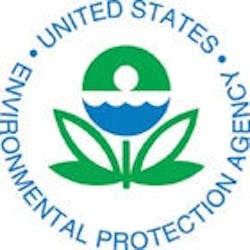EPA Announces New State DWSRF Allotments for Fiscal Years 2010–2013
The U.S. Environmental Protection Agency (EPA) is announcing the revised Drinking Water State Revolving Fund (DWSRF) allotments that will be provided to the states, the District of Columbia, Puerto Rico, U.S. Territories, American Indian Tribes and Alaska Native Villages if the President’s budget request for fiscal year (FY) 2010 is enacted. These allotments reflect the results from EPA’s most recent Drinking Water Infrastructure Needs Survey and Assessment, which was released on March 26, 2009. The revised allocation percentages affect DWSRF Program appropriations for the four years from fiscal years 2010 through 2013.
Each state will receive a minimum of 1% of the national allotment funds available to states as required by Congress. The President’s budget request for FY 2010 includes an increase in the minimum funding to be made available to American Indian and Alaska Native water systems from 1.5% to 2.0% of the total funding appropriated for the DWSRF. The President also requested an increase in the minimum funding to be made available to U.S. Territories from 0.33% to 1.5% of the total available to the States, the District of Columbia and Puerto Rico.
The goal of the DWSRF program is to provide states with a financing mechanism for ensuring safe drinking water to the public. States have used federal capitalization grant funds to establish loan programs from which assistance is provided to public water systems. Eligible infrastructure projects include upgrades of treatment facilities, eligible storage facilities, and transmission and distribution systems. Projects to consolidate water supplies may also be eligible. Since the program began in 1997, states have provided nearly $14.6 billion in low interest loans for more than 6,000 projects.
The second major purpose for which a state may use its capitalization grant is funding “set-asides.” States are allowed to reserve up to 31% of their capitalization grant for a variety of specific purposes designed to further public health protection under the SDWA. Examples of activities that can be funded through set-asides include: technical assistance to water systems, source water protection, operator certification and enhancing the ability of systems to operate successfully in the long term.
Information about the Drinking Water State Revolving Fund program can be found at www.epa.gov/safewater/dwsrf.html.
Source: EPA
